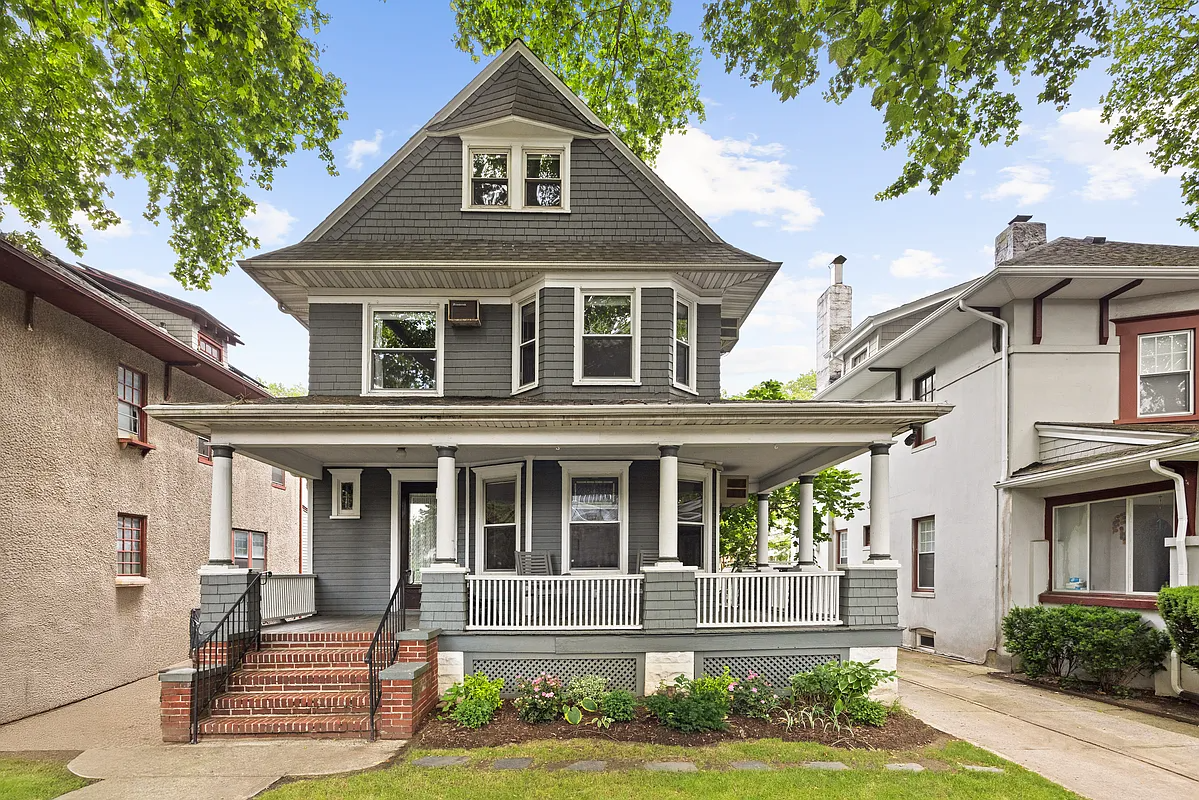Housing Report: Broad and Deep Pain Across U.S.
An article this weekend in the Real Estate Journal (which, unlike its parent paper, is free online) told of widespread doom and gloom for the nation’s housing market. The article sites a recent report by Economy.com that predicts that prices will continue to slide for at least another couple years in roughly 100 metropolitan markets…


An article this weekend in the Real Estate Journal (which, unlike its parent paper, is free online) told of widespread doom and gloom for the nation’s housing market. The article sites a recent report by Economy.com that predicts that prices will continue to slide for at least another couple years in roughly 100 metropolitan markets across the country. The biggest risks lie in California and Florida, the report says. As for New York, the forecast is for a relatively benign decline of 3.5%. Elsewhere on the East Coast, Economy.com says that Boston has already bottomed out. The good news? The current downturn “so far looks more like a correction than a crash on a national scale.” A spoonful of sugar helps the medicine go down.
Prices in 100 U.S. Cities Expected To Decline [Real Estate Journal]
Photo by sercasey





All you geniuses with the “we had a housing stock rally, therefore the market is going up”, time for you to take a basic stock market class. You have no idea what you are talking about.
If the market thought the market was going down 10%, then if that estimate changed to 9% down, the housing stocks would rally.
These folks are showing the same ridiculous logic that was shown in the bubble.
Learn how markets work people.
Oh yeah, and cover your head. Thats the bubble bursting.
Oh and I forgot about the $100K (10%) you claim to be earning on your $1mm investments. Do you really think that return is a historic norm after loads and expenses? Now who’s smoking what?
anon 6:26 – where are you getting a 10% asset backed return? I think i just might sell my house and quit my job.
anon at 6:26,
I knew somebody was going to come up with this oppty cost arguement. You ignore a couple of things:
1) You gotta pay to live somewhere. For similar bstone space, in a “prime” nabe, this could be $7K per month. That’s $84K that you gotta pay in after-tax dollars. If you’re in a high tax bracket, then you need $140K of pre-tax income for rent, which more than cancels out what you’re earning on your CD.
2) Your rent will go up with inflation, which partly cancels out what you’re earning on your CD.
3) Your r.e. equity will appreciate at at least the same rate as the interest you’re earning, actually much more because it is a leveraged investment (i.e. as your home appreciates, your equity accelerates).
4) Your mortgage ded’s will further reduce the cost of owning.
5) Even a 1BR garden rental will fetch $2000/mo in a prime nabe. That’s $24K virtually tax-free income to offset cost of housing.
There’s more, but I only have so much time to devote. If you don’t get it yet, I can’t help you.
I bought last year in Bed Stuy. My 2 rental units are paying my mortgage and I get an apartment for myself as well. Whether we are discussing home prices falling or renting vs buying, I feel confindent that I made the right decision to buy when I did.
“Yes, there I said it. There are people with $1mm down payments. Today’s bstone buyers are not taking out $1.8mm mortgages, and if they did, they probably expect to pay it down by half with their next bonus.”
Then they are a fool for not considering the INCOME they could get by sticking 1m in a CD or better yet a more intelligent investment vehicle. That is lost income sunk into a house, which HAS to be taken into account when looking at whether to buy or not.
I can buy a brownstone this month for $2m if I go poke withdraw all my semi-liquid assets, and pile them together, but I’m not going to, not when I would forgo about $100k per year I was getting from them, after tax! $100k can rent a super nice place!
Andrew from PS
The big expense that you miss for tax purposes is depreciation.Liberal depreciation rules can often negate any income that you may have to declare to Uncle Sam.
Remember also that you will have fuel, utilities, property taxes, mainteance, and other expenses. After all of that the property will most likely be running a loss for tax purposes.
Thanks, glarph.
It would appear that for an honest tax payer, 80% is still too much to factor in. If I get $1000 per month in rental income, reduce this by $200 for related homeowner expenses, I have net $800. Assuming that all $200 are expenses that can be deducted legally for tax purposes, I still need to pay income tax on the remaining $800.
Depending on the marginal income tax rate, the net benefit could easily be $500 or less, which leads me to believe that many strapped owners of multi-families simply do not report this income because they cannot afford to. They do, however, factor the rental income in when justifying or qualifying for the purchase of a multi-family.
Just trying to get a feel for what my neighbors in Brooklyn do as I contemplate buying a house.
Perhaps two or three-families sneak by under the radar or homeowners take cash payments to avoid a paper trail for tax audits.
Not looking for an endorsement of tax evasion tactics, just honest feedback about common practice.
Andrew, when they do the calculations they only allow you to count 80% of the potential rental. That is to offset the related expenses.